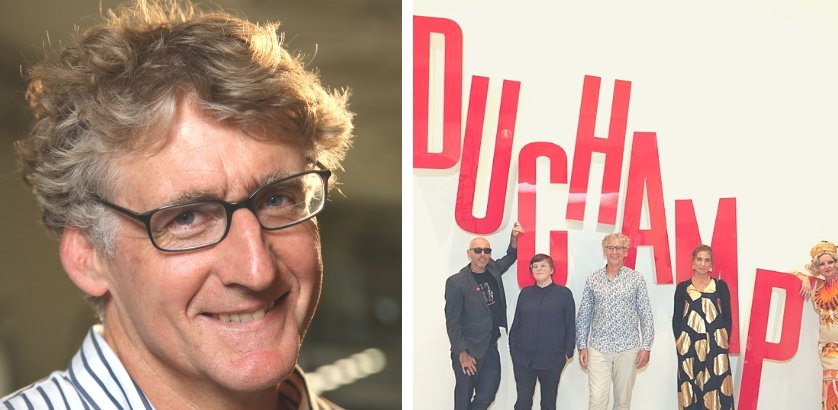"Writing poetry teaches you to see. Active looking, in a way" – David Astle
Writing poetry teaches you to see. Active looking, in a way. Just as listening is the truer version of hearing. And that’s what this Duchamp challenge presented, letting me loose into the artist’s readymade labyrinth.
Before entering the maze, I’d known Duchamp in a shallow way – his piss-take Fountain, his gift for sedition, his enigmatic aura, holding the notion of art to the light. I’d heard about his descending nude, but never had the opportunity to stare long into her momentum, her fractured form and see the marvel for what it is. She is. Duchamp was.
That’s what I mean about seeing. Too often we ghost through salons, clocking pieces on the gallery wall, reading the captions to check whether what we glimpse rhymes with the label, and drift on, bumping in the artist nextdoor, and so on, Manet to Monet all through the alphabet, finishing with a cappuccino.
Red Room Poetry’s commission undid that habit for me. I had to stop and spiral into Duchamp’s symbols and puzzles, decoding his visions and translating them into handpicked words, deeper than captions can manage, crafting words as annex to the artist’s own matrix, an extra line added to the invisible chessboard, a bid to mirror the pattern and tone.
Occasionally I made the match; more often I met my match. Duchamp after all can be grandmasterly, mutinous in a way that thwarts easy interpretation. But I’m indebted to Red Room Poetry for devising the inventive gig, reminding me of why poetry – and meditations of art – matter.
Read David's poems responding to the artworks of Marcel Duchamp. These poems were commissioned for Red Room Poetry's event Punch Lines: Poets Play Duchamp, held in May 2019.
Liked reading this reflection? Check out our other poets' reflections on Punch Lines: Poets Play Duchamp:
- "Ten poems, ten lines each – ten things to say to you and the trace you left behind" by Evelyn Araluen Corr
- "I could feel the artworks’ tendrils creeping towards language and visual poetry" by Pascalle Burton
- "Much of my writing process is about finding sardonic ways to talk about serious, often deeply personal subject matter" by Allison Gallagher
- "I was not friends with Duchamp on entering. We are not friends on leaving. We do share some things" by David Stavanger
- Brian Fuata's reflection coming soon!

